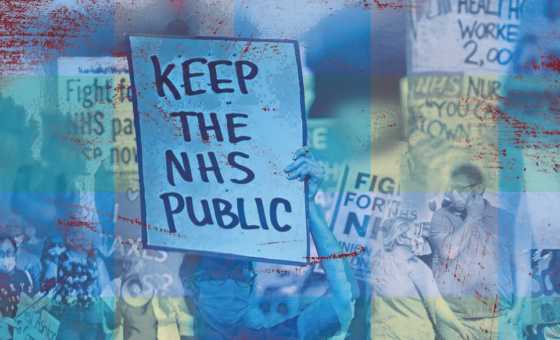This is the last article you can read this month
You can read more article this month
You can read more articles this month
Sorry your limit is up for this month
Reset on:
Please help support the Morning Star by subscribing here
SCOTLAND’S constitutional debate casts a long shadow over its politics. Next May’s Holyrood elections will see the SNP seek a mandate for a second independence referendum. This will suit the Tories. The shrinking political agenda combined with the narrowing constitutional options crowd out other issues and options.
This does not mean that the constitution is unimportant or should not ignored. Constitutions frame political debate and carry inherent biases. But constitutional politics need to be grounded in debates on the kind of society and economy we want.
The current binary choice — independence vs the status quo — distorts debate. Instead of starting by asking what kind of society we want and then considering where constitutional power should lie, it starts and ends by arguing over where power should lie. It discourages serious public policy debate and gives impetus to a battle between Scottish and British identities that plays more on emotions than reasoned considerations.
The limited choice on offer means that many people feel excluded or forced to make a choice between the lesser of two evils. Though the case for an independence referendum is made in terms of popular sovereignty, giving people the right to determine their own future, a binary referendum is like offering only a choice between the Tories and SNP. Another alternative is not only possible but its denial makes a travesty of claims that this is an exercise in self-government.
There has always been a strong strand of opinion on the left that rejected a nationalist framing of the Scottish Question but understood the need for constitutional reform. Trade unions have consistently provided leadership on these issues. In recent years, considerable work on an alternative UK-wide reform was well in preparation under Jeremy Corbyn’s leadership that included giving Holyrood more powers and seeking to entrench devolution.
Pauline Bryan and the Red Paper collective have led the case for Scottish and UK reform along with Neil Findlay MSP in Holyrood. These ideas have been developing since before the 2014 referendum and are not a knee-jerk reaction to the rise of the SNP but offer a critique of the dysfunctional nature and proposals for a radical overhaul of the UK today.
A key lesson from the past is that change motivated solely by electoral considerations is not enough. In the 1970s, Labour was led kicking and screaming by the unions to accept devolution but only truly embraced the policy in the 1980s when it saw the need to have a bulwark against Thatcherism.
What distinguishes the ideas now emerging on the left is that they take the case a major step forward. While devolution was a protective measure, these changes have a more positive motivation. The demand to devolve powers on drugs policy and employment rights would allow Holyrood to take a lead and offer an example of what is possible.
A crucial element is the neglected area of reform at the centre. Debates on devolution have been focused almost exclusively on what happens in devolved areas. The need to enhance the voice of the devolved nations and neglected regions of England in London is acknowledged with proposals to remove the anachronistic House of Lords and replace it with an elected House of Nations and Regions.
There are challenges before a third option gets on the ballot paper. It will need to be fully formulated but that is also true of the status quo and independence. A proposed alternative exists and could become the basis for debate on the third option making a third option more fully developed than the independence case.
As the SNP has been fond of noting, there has been a “material change of circumstance” since 2014 caused by Brexit. Brexit will have a significant impact on devolution which had not been anticipated in 2014 nor when Scotland voted for a parliament in the 1998 referendum. Supporters of the status quo will need to clarify and win support for these changes to devolution in any referendum.
The SNP too will need to clarify what it means by independence and dusting off the 2013 white paper would be inadequate. So long as the whole of the UK remained in the EU, the border between Scotland and England would have been reasonably porous even if Scots had voted for independence five years ago.
But that border becomes much harder assuming Scotland is in the EU and the rest of the UK is out. The SNP is deeply divided on currency and the economic model that will be followed and prefers to avoid serious debate on these matters, preferring to bang the identity drum instead.
But this does not take away from the need for a clearly articulated third option. The starting point distinguishing a third option from the others would be to consider the kind of society envisaged, the constitutional powers required, and how these should be distributed from local communities onwards. The truncated approach that focuses on only one “level” and through the lens of national identity immensely limits debate.
James Mitchell is Professor of Politics at Edinburgh University












